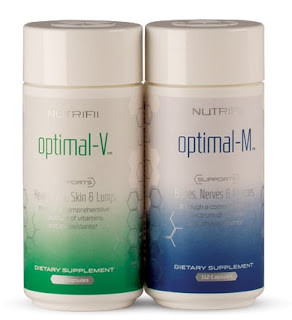Foods to Improve a Leaky Gut
If you suffer with a leaky gut the most important thing to do is to avoid the foods that exacerbate your symptoms. While this seems obvious and simplistic, most people look for a ‘cure’ and overlook the most obvious and healthy solution.
Healing a leaky gut may take six months to two years, sometimes even longer, depending on the severity of the damage.
If you want to renew your gut’s health, avoid eating dairy products, grains and legumes. Most of all, make sure your gut gets the nutrients it needs to completely heal. One way to do this is to eat food that not only heals, but also improves the health of your gut. Here’s an example of the foods you should include in your diet.
Bone Broth
Bone broth is usually at the top of the list of foods that promotes gut health. This is due to the excellent sources of gelatin and collagen peptides - substances that are hardly found in other foods.
These substances are loaded with amino acids that make up our gut lining, skin and joints. These gelatin and collagen peptides help strengthen the gut lining while also reducing inflammation in the body.
Most of all, these peptides work wonders in improving digestive function. Just choose bones that come from grass-fed beef when making your bone broth.
Ginger
Ginger contains antibacterial, antiparasitic, antiviral and antifungal properties. It prevents the formation of cancer cells while it also revs up the immune system functioning.
Ginger does not only work to provide relief from stomach upsets and nausea. It also plays a role in the production of digestive juices such as pancreatic enzymes, bile and stomach acids. A healthy production of digestive juices is crucial for people who are afflicted with leaky gut syndrome as it works to reduce any gut-related inflammation.
Pineapple
Pineapple is touted as a super food for gut health. It is rich in compounds that are beneficial for maintaining balance in the digestive system. It has a very dense mineral profile that works to heal any damage present in the intestinal lining. Some of these are zinc, potassium, iron, copper and manganese.
One kilogram of pineapple contains approximately 1,328mg of potassium, while it also has 66 mg of magnesium, 91 mg of manganese and 41 mg calcium.
The stem of the pineapple is rich in the mineral bromelain. Bromelain has been found to reduce the damaging effects of inflammation in the intestinal tract.
Organic Meat
Where possible, select organic, pasture-raised or grass-fed animal sources of meat. This meat contains a good source of omega-3 fatty acids that are important for reducing gut irritation.
Studies have shown that omega 3 fatty acids are helpful in reducing inflammation. These omega 3 fatty acids work in two ways.
· They inhibit the formation of eicosanoids which are compounds found to be pro-inflammatory.
· Secondly, these omega 3s also work to form anti-inflammatory compounds that help reduce inflammation.
Therefore, omega 3s work to prevent the onset of inflammation, while also reducing the existing inflammation.
Coconut
Coconut food products are excellent sources of MCFAs or medium-chain fatty acids. MCFAs are easier to digest than any other types of fats. This is why it serves as a healthy addition to a person’s diet, especially to people who have problems with their digestive health.
Plus, if you choose to eat coconut kefir you will be able to obtain the additional health benefits of probiotics. Coconut is known to help reduce inflammation and improve nutrient absorption. It is also found to be helpful in sealing inflamed digestive tract linings. This makes it very beneficial for people suffering from leaky gut syndrome.
Dark Leafy Greens
Findings from an Australian study revealed that a special type of immune cell can be regulated through the regular consumption of dark green leafy vegetables.
These immune cells are called ILCs or Innate Lymphoid Cells. These cells play a role in protecting the body against any bad bacteria that may enter the intestine. This then protects the body against infections that may form in the digestive system. In addition to its protective role, these ILCs also promote the growth of good bacteria and help in the process of healing small wounds that are present in the gut tissues.
Researchers found that to assist the growth of ILCs people should increase their consumption of dark green leafy vegetables. Good examples are arugula, Chinese broccoli, brussels, cabbage, collard greens and kale.
Healing a leaky gut may take six months to two years, sometimes even longer, depending on the severity of the damage.
If you want to renew your gut’s health, avoid eating dairy products, grains and legumes. Most of all, make sure your gut gets the nutrients it needs to completely heal. One way to do this is to eat food that not only heals, but also improves the health of your gut. Here’s an example of the foods you should include in your diet.
Bone Broth
Bone broth is usually at the top of the list of foods that promotes gut health. This is due to the excellent sources of gelatin and collagen peptides - substances that are hardly found in other foods.
These substances are loaded with amino acids that make up our gut lining, skin and joints. These gelatin and collagen peptides help strengthen the gut lining while also reducing inflammation in the body.
Most of all, these peptides work wonders in improving digestive function. Just choose bones that come from grass-fed beef when making your bone broth.
Ginger
Ginger contains antibacterial, antiparasitic, antiviral and antifungal properties. It prevents the formation of cancer cells while it also revs up the immune system functioning.
Ginger does not only work to provide relief from stomach upsets and nausea. It also plays a role in the production of digestive juices such as pancreatic enzymes, bile and stomach acids. A healthy production of digestive juices is crucial for people who are afflicted with leaky gut syndrome as it works to reduce any gut-related inflammation.
Pineapple
Pineapple is touted as a super food for gut health. It is rich in compounds that are beneficial for maintaining balance in the digestive system. It has a very dense mineral profile that works to heal any damage present in the intestinal lining. Some of these are zinc, potassium, iron, copper and manganese.
One kilogram of pineapple contains approximately 1,328mg of potassium, while it also has 66 mg of magnesium, 91 mg of manganese and 41 mg calcium.
The stem of the pineapple is rich in the mineral bromelain. Bromelain has been found to reduce the damaging effects of inflammation in the intestinal tract.
Organic Meat
Where possible, select organic, pasture-raised or grass-fed animal sources of meat. This meat contains a good source of omega-3 fatty acids that are important for reducing gut irritation.
Studies have shown that omega 3 fatty acids are helpful in reducing inflammation. These omega 3 fatty acids work in two ways.
· They inhibit the formation of eicosanoids which are compounds found to be pro-inflammatory.
· Secondly, these omega 3s also work to form anti-inflammatory compounds that help reduce inflammation.
Therefore, omega 3s work to prevent the onset of inflammation, while also reducing the existing inflammation.
Coconut
Coconut food products are excellent sources of MCFAs or medium-chain fatty acids. MCFAs are easier to digest than any other types of fats. This is why it serves as a healthy addition to a person’s diet, especially to people who have problems with their digestive health.
Plus, if you choose to eat coconut kefir you will be able to obtain the additional health benefits of probiotics. Coconut is known to help reduce inflammation and improve nutrient absorption. It is also found to be helpful in sealing inflamed digestive tract linings. This makes it very beneficial for people suffering from leaky gut syndrome.
Dark Leafy Greens
Findings from an Australian study revealed that a special type of immune cell can be regulated through the regular consumption of dark green leafy vegetables.
These immune cells are called ILCs or Innate Lymphoid Cells. These cells play a role in protecting the body against any bad bacteria that may enter the intestine. This then protects the body against infections that may form in the digestive system. In addition to its protective role, these ILCs also promote the growth of good bacteria and help in the process of healing small wounds that are present in the gut tissues.
Researchers found that to assist the growth of ILCs people should increase their consumption of dark green leafy vegetables. Good examples are arugula, Chinese broccoli, brussels, cabbage, collard greens and kale.



Comments
Post a Comment